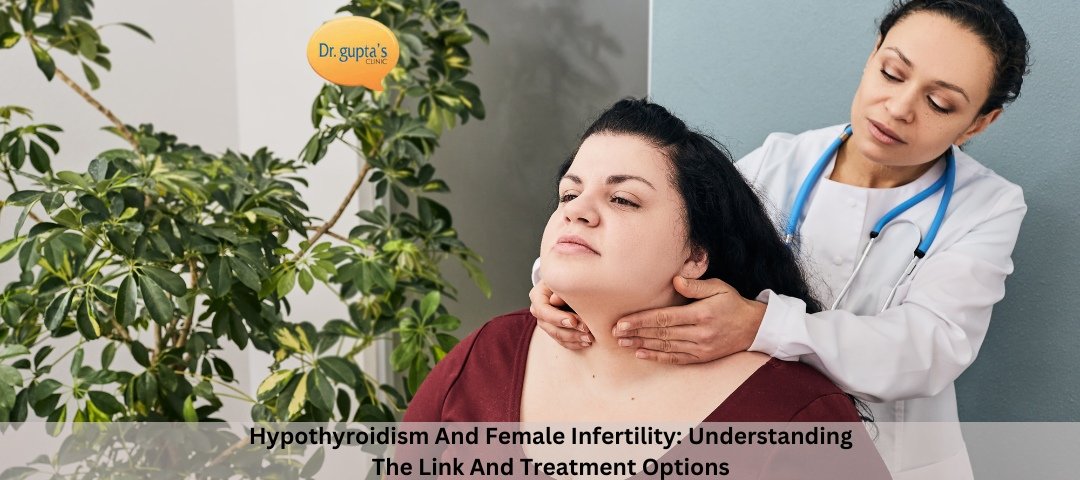Hypothyroidism is a condition where the thyroid gland does not produce enough thyroid hormone, which can significantly impact a woman’s fertility. According to an infertility doctor, there is a strong link between hypothyroidism and infertility in women.
How Can Hypothyroidism Cause Infertility In Females?
One of the ways hypothyroidism can cause infertility is by interfering with the release of eggs from the ovary, leading to anovulation. This can make it difficult for women to conceive naturally. Hypothyroidism can also affect the pituitary gland, leading to other hormonal imbalances that can impair fertility.
Another complication of hypothyroidism is an elevated level of prolactin, a hormone that plays a role in milk production. High prolactin levels can disrupt the menstrual cycle, causing irregular or absent periods and even early menopause. This can affect a woman’s ability to produce healthy eggs, leading to infertility.
If you are trying to conceive and have hypothyroidism, it is important to work closely with an infertility specialist to manage your thyroid hormone levels. Keeping your thyroid hormone levels under control can promote a healthy pregnancy and fetal development.
Symptoms Of Hypothyroidism That You Need To Know
It’s also essential to be aware of the symptoms of hypothyroidism, which can include dry skin, excessive hair fall, depression, weakness, a puffy face, and a hoarse voice. If you experience any of these symptoms, seeking medical evaluation and appropriate treatment is essential.
Diagnosing hypothyroidism typically involves a blood test called the stimulating thyroid hormone (TSH) test, which measures the amount of thyroid hormone released.
Symptoms Of Hypothyroidism That You Need To Know
Treatment options for hypothyroidism may include medications such as levothyroxine, taken orally to increase thyroid hormone production, or radioactive iodine therapy, commonly used to treat hyperthyroidism but can also be used for hypothyroidism.
If you are facing difficulties conceiving and have hypothyroidism, it’s important to seek infertility treatment and manage hypothyroidism symptoms. Frequent monitoring of your thyroid hormone levels is crucial to keep a check on its release and prevent further health complications.
Conclusion
In conclusion, hypothyroidism can have a significant impact on female fertility, affecting ovulation, menstrual cycles, and hormonal balance. It’s important to work closely with an infertility specialist and follow recommended treatment options to manage hypothyroidism while seeking infertility treatment. Monitoring thyroid hormone levels regularly can help promote a healthy pregnancy and improve the chances of conceiving successfully.
For more information, please visit the website.
Website: https://www.drguptas.com/
You can also contact us through mail on: drguptasclinic@gmail.com
Or can also call us on: +91 9831834215
Related Blogs
How To Stop Masturbation In Men: Effective Ways To Overcome Masturbation Addiction
Are you in the habit of masturbating a lot? If yes, then you are on the right page! Masturbation is a natural and healthy aspect of human sexuality, contributing to sexual pleasure and overall sexual well-being. However, when it becomes an uncontrollable masturbation...
10 Effective Home Remedies For Vaginal Discharge
Many women have white discharge, also known as leucorrhoea, which is an issue that usually affects young girls of school age. This discharge problem occurs at a certain time period of the menstrual cycle. Girls and women shouldn't worry because the amount of white...
PCOD Diet: Foods To Eat And Avoid
Many immature or partly developed eggs are released by the ovaries as a result of polycystic ovarian disease (PCOD), which leads to cyst formation. Reduced symptom severity is a primary goal of PCOD diet and therapy. Indications of PCOD include painful or irregular...




